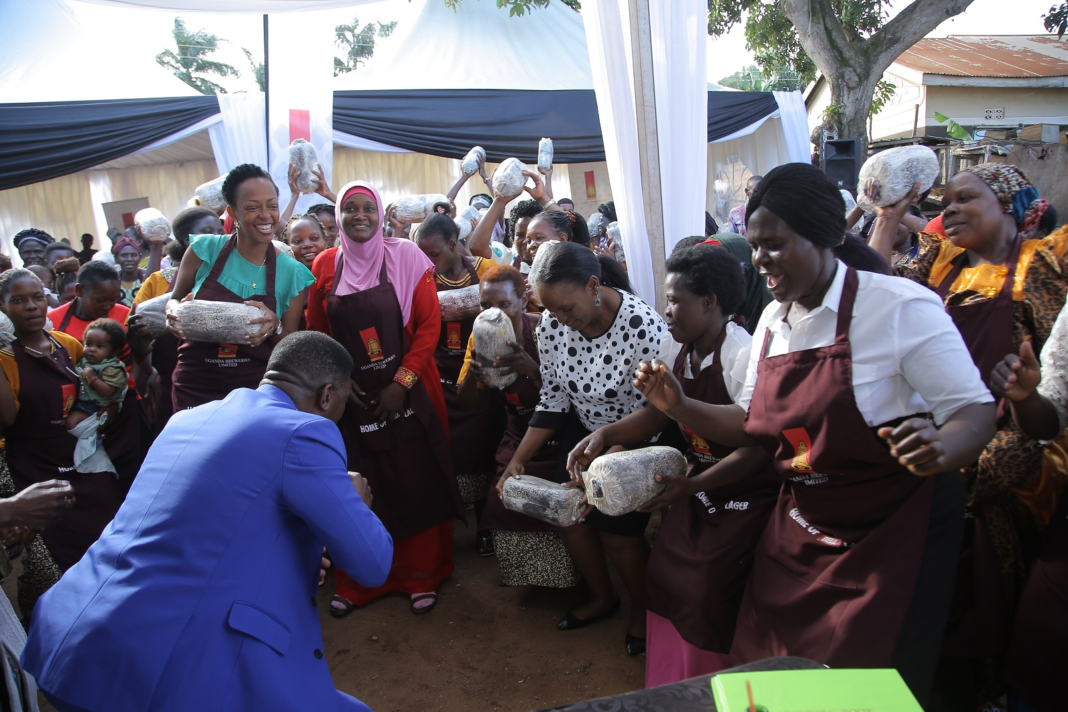Over 50 women have benefited from agribusiness training and mushroom gardens to boost their household income.
A study from the World Bank indicates that females account for 76% of Uganda’s workforce in the agricultural sector and contribute about 60% to 80% to the production of locally consumed food.
With Uganda’s population standing at 45 million people at the current growth rate of 3.6%, the population is expected to double by 2050. This means that the demand for food will keep increasing and so there’s a need to empower women with the right skills they need so that they are able to produce food for their families as well as income generation.
Speaking after the training, the Corporate Relations Director Uganda Breweries, Juliana Kagwa said many women living in urban settings bear the burden of growing income gaps due to the multiple forms of barriers women face in their everyday lives which have put them at a greater risk of poverty and limited negotiating power to access to resources.
“We recognize that inequitable access to skills and resources are some of the key reasons why having equal opportunities for women is seemingly difficult. This means that equitable actions need to be put in place to empower women and one of the ways is through acquiring skills. As players in the private sector, we pledge to continue working together with the local leadership to empower the women of Luzira and beyond so that we completely eliminate poverty and achieve gender equality for all women,” said Kagwa.
“Most inclusive and diverse culture makes a better business and a better world and this can be done through championing inclusion and diversity within our business, our partners, and communities around our areas of operation. We pledge to continue providing avenues where there’s equal opportunity for those in our communities to grow as we grow,” she said.
Fatumah Naigaga, Luzira Women Councillor LCIII said women living in urban slums in particular endure multiple hardships ranging from basic needs such as; unemployment, nutrition, durable housing, limited access to clean water, and improved sanitation facilities which often go unmet. This has constrained women’s participation in all spheres of life with serious implications for human resource development and, in that capacity, the economic development of the country and the general state of gender equality is still a great need.







